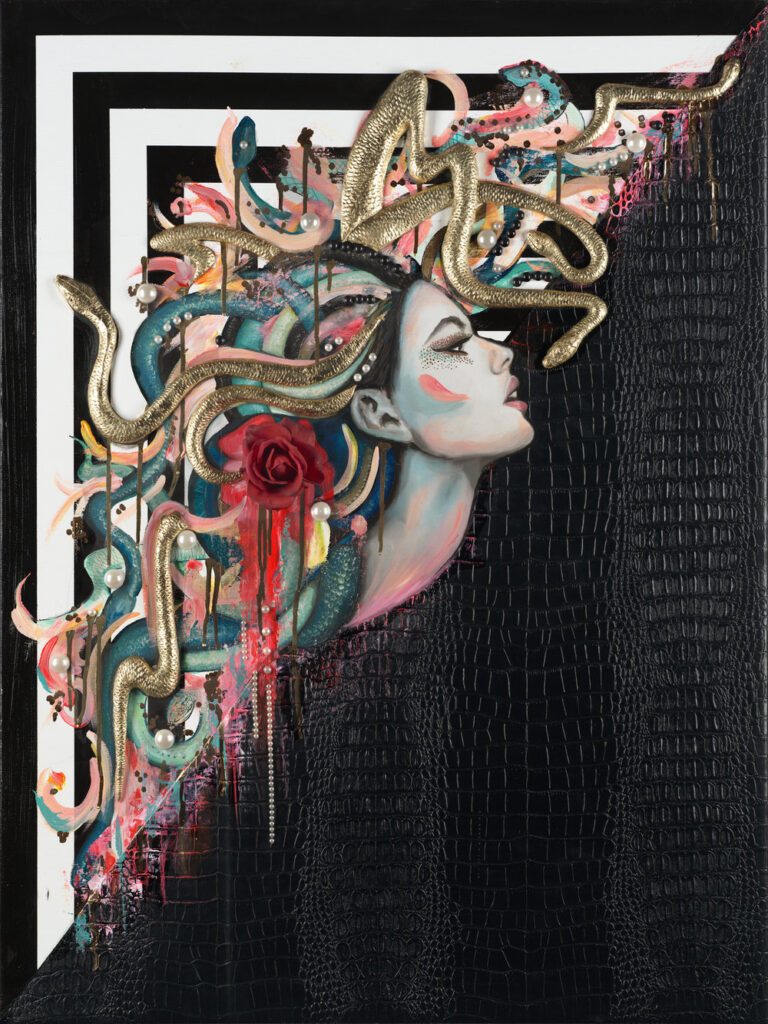
Medusa Remix, Jamie Rice JamieRiceArt.com
Greetings, dear readers!
The following is a continuation of our blog series “Reflections from the Heart of the Feminine.” If you’re just joining us you may want to start here.
Quotation from Chapter 6 for Reflection and Discussion:
Every myth represents a treasure-house of wisdom regarding the world and our personality. And, the way to these treasures is difficult and tangled. All too often when it seems like the mythic map is clear, we suddenly discover that there is a whole new level of the myth before us. Myths are meant to take us beyond ourselves, beyond the ways we have looked at life and particularly at our difficulties and struggles. For example, in The Odyssey, we find two levels in the story.
The first is the quest of Telemachus to find his father. The second is the quest of Odysseus to return home to his wife. In mythic terms, Telemachus is searching for his own inner authority and Odysseus is trying to return home through a journey haunted by his encounters with feminine figures. Both quests come together as Odysseus completes the symbolic masculine search for the inner feminine. Myths are about the realization of different aspects of our wholeness, and they are not about gender roles. They reflect how the archetypal patterns of the masculine and feminine live and intertwine in all of us. And they describe what happens when such patterns become one-sided: Nature sets the stage to redirect them through journeys of transformation. (p. 85-86)
Questions for Journaling and Group Discussion:
Do you feel like you had the opportunity to fully live your youthful years?
How much negative energy did you feel that you “internalized” from your parents?
How do the following questions (from page 93 of the book) help you understand your life and look forward to a renewed future?
- How conscious am I of how the Medusa in my life affects me?
- What kinds of emotions do these thoughts bring up in me? Where do I feel them in my body?
- How have I projected the Medusa outside of me?
- What central theme dominates the fable about my childhood that I made up to protect myself?
- What do I project onto a man or woman who is taking the time to be quiet, to be still, to be passive, to be receptive, or to be contemplative? How do I discriminate between these states of being and those valued by our patriarchal culture, such as being active, productive, and dynamic? Do I project different things onto a man and a woman who are behaving in the same way?
To get a good introduction to the Death Mother archetype, watch Massimilla’s lecture on the topic:
Book Excerpts and Resources
, archetypal feminine, Death Mother, healthy personality, honoring your own needs, Medusa, myths, Personal Transformation, projections, shadow work
Please stay positive in your comments. If your comment is rude it will get deleted. If it is critical please make it constructive. If you are constantly negative or a general ass, troll or baiter you will get banned. The definition of terms is left solely up to us.
Leave a Reply